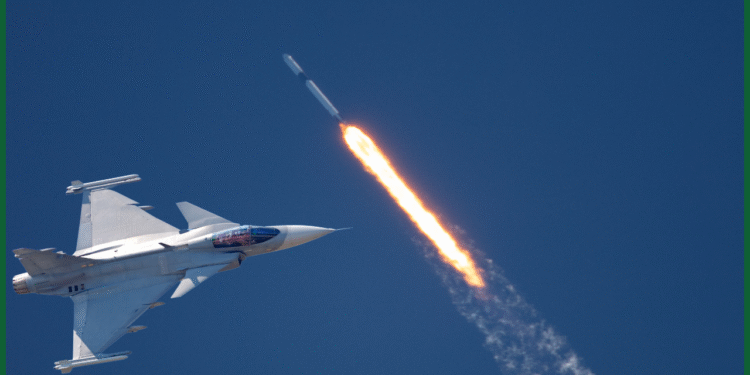Tensions between India and Pakistan have escalated sharply following India’s recent military operation, codenamed Operation Sindoor, which targeted alleged terrorist infrastructure in Pakistan and Pakistan-administered Kashmir. The strikes, launched on May 7, 2025, were in retaliation for a deadly attack on April 22 in Pahalgam, Indian-administered Kashmir, where 26 civilians, mostly Hindu tourists, lost their lives. As the world watches anxiously, the question on many minds is: will Pakistan retaliate with an attack on India tonight?
Background of the Current Crisis
The Pahalgam attack, which India attributes to Pakistan-based militant groups, has reignited longstanding animosity between the two nuclear-armed neighbors. India’s response involved precision missile strikes on nine sites, including locations in Punjab and Pakistan-administered Kashmir, which India claims were terrorist camps. Pakistan, however, denies these allegations, asserting that the strikes hit civilian infrastructure, killing at least 26 people, including children, and injuring dozens more. Islamabad has labeled the strikes an “act of war” and vowed to respond “at a time and place of its choosing.”
The situation is further complicated by intense shelling and gunfire across the Line of Control (LoC), the de facto border in Kashmir, with both sides reporting civilian casualties. Pakistan’s National Security Committee has authorized its armed forces to undertake “corresponding action,” raising fears of imminent retaliation.
Factors Influencing a Potential Pakistani Response Tonight
Several factors could determine whether Pakistan launches an attack on India tonight:
- Military Posturing and Domestic Pressure: Pakistan’s leadership, both political and military, faces significant domestic pressure to respond decisively to India’s strikes. Public sentiment, amplified by images of civilian casualties, could push Islamabad toward immediate action to restore national pride and deter further Indian aggression.
- International Diplomacy: Global powers, including the United States, China, and the European Union, have urged both nations to exercise restraint. The EU’s foreign policy chief, Kaja Kallas, has called for de-escalation, while China has labeled India’s actions “regrettable.” These diplomatic efforts might delay Pakistan’s response as it gauges international support.
- Strategic Calculations: Pakistan’s military is likely assessing the risks of escalation. Both nations possess nuclear capabilities, and any miscalculation could lead to catastrophic consequences. Pakistan may opt for a measured response, such as targeted strikes in Indian-administered Kashmir, rather than a large-scale attack.
- Airspace and Operational Readiness: Pakistan has reopened its airspace to civilian flights, signaling a degree of normalcy. However, its fighter jets were scrambled during India’s strikes, and the military remains on high alert. The Punjab province has declared a state of emergency, with hospitals and security forces mobilized, indicating preparedness for further conflict.
What Could Happen Tonight?
While Pakistan has promised retaliation, the likelihood of an attack tonight depends on its strategic objectives. A direct military strike on Indian soil could escalate the conflict beyond Kashmir, risking a broader war. Alternatively, Pakistan might engage in asymmetric warfare, such as supporting insurgent activities in Indian-administered Kashmir or conducting cyberattacks to disrupt Indian infrastructure.
Another possibility is a symbolic response, such as increased shelling along the LoC or a limited airstrike on Indian military outposts in Kashmir. Such actions would signal resolve without triggering a full-scale conflict. However, the rhetoric from Pakistan’s leadership, including Prime Minister Shehbaz Sharif’s condemnation of India’s actions as endangering commercial aviation, suggests a strong inclination to act swiftly.
Global and Regional Implications
The India-Pakistan conflict has already disrupted regional stability. Major airlines, including Lufthansa and Korean Air, have rerouted flights to avoid Pakistani airspace, causing logistical challenges. India’s suspension of the Indus Water Treaty, a critical agreement governing water sharing, has further heightened tensions, threatening livelihoods across both nations.
The international community remains on edge, with Russia expressing concern and Turkey urging “common sense.” The United States has reiterated its support for India’s fight against terrorism but called for cooperation from Pakistan in investigating the Pahalgam attack. These dynamics could influence Pakistan’s decision-making, as it seeks to avoid isolation on the global stage.
Conclusion
As of now, there is no definitive evidence that Pakistan will attack India tonight. However, the volatile situation, fueled by mutual accusations and a history of enmity, makes retaliation a distinct possibility. Both nations are treading a dangerous path, and the coming hours will be critical in determining whether diplomacy can prevail over military action. For now, the world holds its breath, hoping cooler heads will avert a deeper crisis.
This article is based on open-source information and does not reflect official statements or classified intelligence. For the latest updates, follow reputable news outlets.

















































